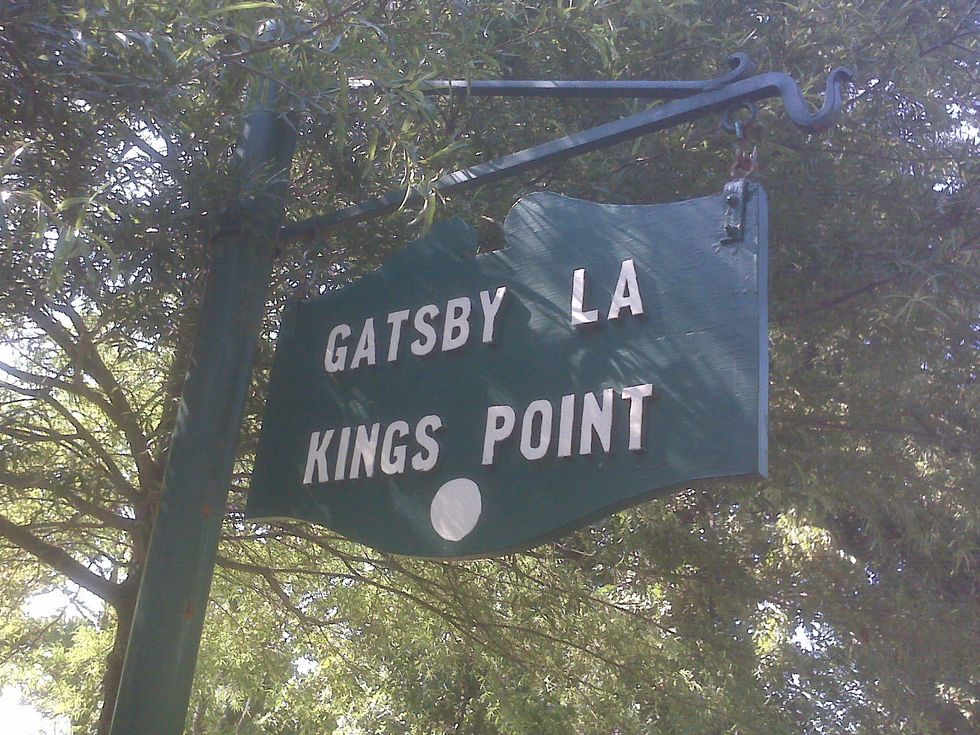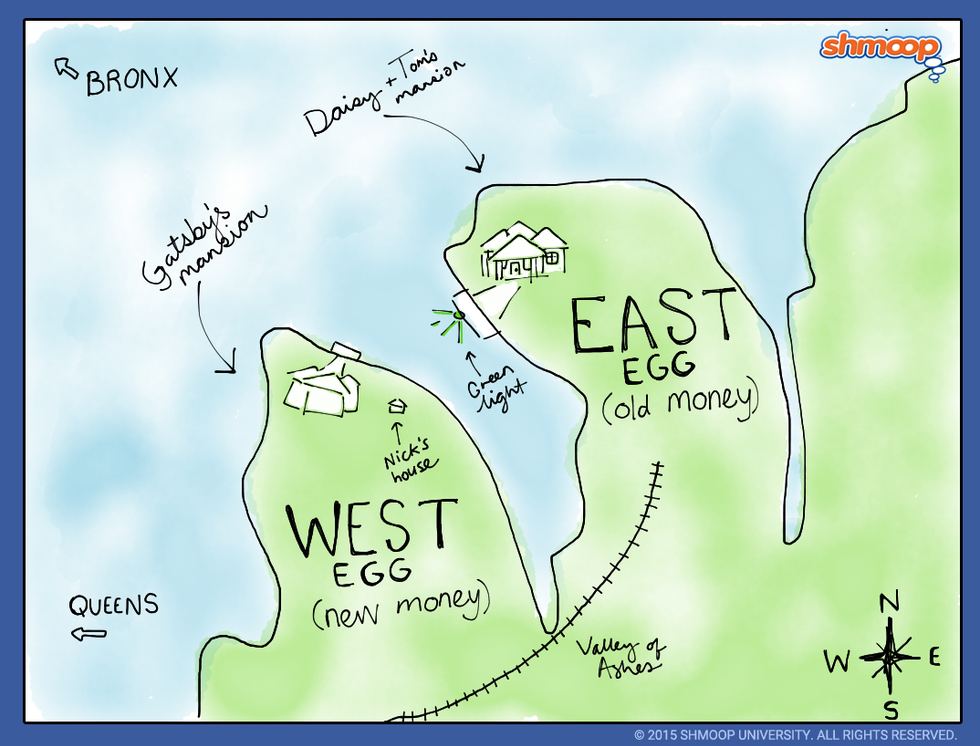Board the Long Island Rail Road. Watch the gap. Rest your oars for a while. Be borne back into the past over tracks that will lead you to F. Scott Fitzgerald’s Eggs, both West Egg and East Egg; or, as I'm familiar with them, Great Neck and Port Washington.
“So we beat on, boats against the current, borne back ceaselessly into the past.” And so, we concluded reading The Great Gatsby in AP English, in Great Neck South High School, in Great Neck, New York, in the same town described in the book we had just read. Pretty surreal, don't you think?
The purpose of this article is by no means to rag on Great Neck, but rather to show that the Great Neck I grew up in, I lived in, I loved in, I read this book in, is not very different from the Great Neck that F. Scott Fitzgerald wrote about. Like every author, and like every writer (including self-publishing Odyssey writers like myself), Fitzgerald pulled upon what he knew to create literature that described what he thought and felt. From the perspective of an inhabitant of Great Neck, I can affirm that the West Egg Fitzgerald describes hasn't really changed.
While some of the features described in West Egg seem to resemble any North Shore Long Island town, there are certain features that are exclusive to Great Neck.
Fitzgerald is blunt: the people of West Egg are wealthy. The people who inhabited West Egg were a product of “new money.” Great Neck has constantly evolved over the years, even more so now, but the one thing that has remained is that the inhabitants of this town each have their own story of success. Many are immigrants, having moved from a foreign country in search of a better job, in search of a better education, and in search of a better life. In my own dad’s case, he worked and traveled for so many years, saving so much money, so that he could migrate from the Bronx to Queens and finally to Great Neck; each move represented his increasing success. All the main characters in the Great Gatsby are not native to New England. Gatsby grew up in North Dakota; most of the rest grew up in Louisville, Kentucky. The Westerners moving east were trying to make new lives for themselves and leave the immature West behind. Great Neck, like West Egg, rejoices in its diversity, using it as a means to maintaining its wealth.
However, to have amounted such wealth is to have time for leisure. Like Gatsby and Nick, there is plenty of time in Great Neck to spend worrying about how they are perceived by society. We post stories on our snapchats featuring the highlight reel of our trip abroad, or the party where no one is actually dancing. We post these things with the subconscious—sometimes conscious—hope that a certain person or people will see it, just like Gatsby would flare his green light across the water, hoping Daisy would see it. We spend our time conforming to certain standards created by certain people, like not wearing pink suits.
When someone does breech the silent code of social standards, there’s very little outright arguing or confrontation. In West Egg, the residents frequently gossiped at huge parties. The gossip, however, always circled back to the person of interest. Snide comments and gossip were utilized because these weren’t the type of people to settle things with violence. I’ll be quite blunt: things haven’t changed on this front.
Overall, it’s incredible to have been raised in a town so rich in history. The Great Gatsby isn’t the only book written about my area of Long Island; other books include The Gold Coast and The Lightning Thief. So yeah, growing up in this town has had its moments of pettiness and certainly has a handful of phonies, but I wouldn’t trade it for anything. This town raised me; it taught me to embrace diversity, to work for success and to be true to myself, always.





















